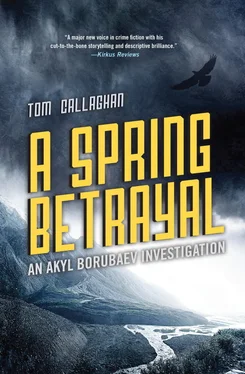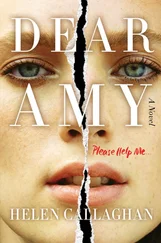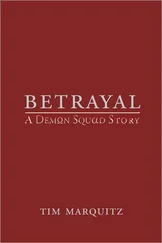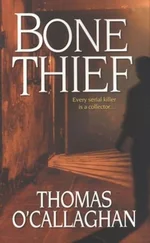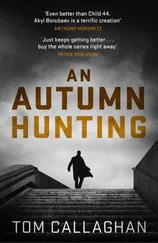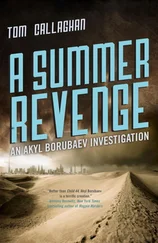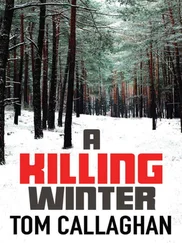“So what now?” I asked.
“We wait,” Saltanat said. “Albina is bound to get in touch with me. Graves will have told her you escaped, and that gives us an opening we can exploit.”
I would have liked to take the initiative ourselves, but sometimes it’s better to allow the enemy to commit themselves. Then you can see an opening to strike back.
“Why don’t you call her?” I said.
“There’s nothing that will aggravate her more than thinking I’m ignoring her,” Saltanat said. “And if she’s annoyed, she won’t be thinking clearly. And that’s to our advantage.”
I could see the feud between the two women had become Saltanat’s main concern, but mine was still with Graves.
“Shouldn’t we deal with Graves first?”
Saltanat shook her head.
“Graves with Albina is a lot more dangerous. Getting rid of her puts him on the back foot, removes some of his protection.”
“You’re going to kill her?” I asked the question, but I already knew the answer.
“If I don’t, then she’ll kill me. And then you. You’ve already had a taste of what she can do. It’s a matter of survival.”
“You realize that when she calls you, she’ll be setting up a trap?” I asked.
“It’s only a trap if we let it be,” Saltanat replied. “It doesn’t take much to make sure your opponent’s foot gets snared, not yours.”
I looked around at the enormous flat-screen TV, the elegant table and chairs, the king-sized bed. Western businessmen must have used this room to plot fortunes, deals, lies, and deceits. Upmarket working ladies earning in an hour what I made in a month. Caviar on a plate and mistrust in the air. It seemed a very odd setting to be discussing a woman’s death, avenging rape and murder, but maybe not so odd after all. Suddenly I felt restless, out of place, wanting to get back to the streets and grimy bars, where I understood what was going on, knew how to deal with it. The hotel suite was as alien to me as the far side of the moon.
Saltanat looked at me, sensed my mood, knew what I was thinking.
“The police are still looking for you; is it smart to go wandering around town?”
I shrugged.
“I’ll wear dark glasses,” I said, hoping to make her smile. It didn’t work. “I’ll go crazy, just sitting around here, I’m not going to shout my name outside the White House. I just need to walk around, decide what I’m going to do next.”
If Saltanat noticed I hadn’t said what we’d do next, she didn’t show it.
“I’ll call you later,” I said, shrugging on my jacket. Then it was Saltanat’s turn to shrug. It felt as if any possible relationship was doomed to capsize before it had begun. My fault, I imagined. Too much pain, too many memories, the fear of loving and losing again. I nodded and walked toward the door. I didn’t say goodbye.
As I walked down Chui Prospekt, the young women who worked in the parliament building were out in force, enjoying the spring sunshine and the chance to show off their summer dresses. I went past several groups, laughing, chatting, mobile phones held like talismans, charms to ward off the twin dangers of growing old and being alone. None of them noticed me; it’s what happens to men when they see middle age staring at them like the barrels of a shotgun.
I tried to shake off my melancholy, strolled through the park, past the swings and rides, listened to children shrieking in their excitement. They sounded like birds returning in flocks to settle in the upper branches of the trees. I walked past the roughly carved stone statues that peered out from behind bushes or crouched down among long grass. They looked elemental, timeless, as if they had been here long before the city, and would be long afterward, staring out across broken walls and burned-out cars.
I sat down on a bench, stared up at the sun through the canopy of leaves. The light made everything dappled, camouflaged, and mysterious. I felt as if I’d lost my way in a dark wood, the path uncertain, my journey pointless. I knew Graves was too well connected, with money and contacts. They would keep him out of a courtroom, out of a cell. Before, the thought of him getting away with murder would have enraged me. Now, it simply seemed the way of a world that ignored all the ways of living in which I believed. Cynicism or realism? Perhaps they’re both the same.
I sat there for an hour or so, trying to wipe my mind clean of the tiny bodies I’d unearthed, the films I’d sat through where blood splashed the walls, and eyes and mouths screamed silently for a help that didn’t arrive. But if I was hoping for peace, it didn’t come. Too many bodies, too much suffering. The pretty girls and old men and dancing children never see my world, if they’re lucky. I’m the man in black who squats in the corner of people’s lives, unnoticed, an undertaker for souls.
A cloud passed over the sun, wind shaking the leaves. Spring holds the promise of summer, but the memories of winter are never too far away. I walked back to Chui Prospekt and made a call on the way. I suggested a meeting place, then walked unseen past laughing children and their watchful mothers.
The banya at the far end of Ibraimova is one of the better legacies from our not-so-glorious days as part of the Soviet Union. Recently renovated, it’s a great place to relax, with two different sauna rooms, massage tables, and a circular ice-cold pool under a white tiled hemisphere. There’s even a snack bar where you can buy horse-meat sausage and cold beer, and if you want to get a haircut, there’s a small salon run by two women whose indifference to the naked men who use the banya suggests they’ve seen everything, from long and tall to short and small. It’s the ideal place to meet if you want to make sure no one’s hiding a gun or a tape recorder.
I undressed, put my clothes in one of the lockers, and making sure no one was looking, slipped some papers onto the top of the lockers. I walked into the shower room, where I paid a thickset middle-aged woman for a thin cotton sheet, wrapping it around my waist. She looked at my damaged shoulder, at the blood-crusted furrow whose edges were already starting to look inflamed, infected.
“You can’t go in the pool, not with that,” she said.
“I’m only going to use the heat,” I replied. My answer seemed to satisfy her; I was only grateful she didn’t look down at my foot.
“How did you get that, anyway?” she asked, nodding at my shoulder.
I shrugged, did my best to look browbeaten. It wasn’t too hard.
“The old woman, she’s got a temper on her. Tatar,” I explained. “And maybe I’d had a couple of beers too many, got home late.”
The attendant pursed her lips.
“You’d have gotten worse from me if you were my husband,” she said, and turned away, convinced once more about the fecklessness of men. I nodded, decided not to buy a bottle of Baltika, in case she hit me with it.
I was early, so I took a long hot shower, then endured ten minutes in the hottest of the steam rooms, surrounded by naked men, most of whom were slapping themselves or each other with birch twigs. We have some strange customs in Central Asia. Some of the men were also wearing tall kalpak felt hats, which must have added to the heat. The wooden slatted floor was littered with leaves, and they stuck to my feet when I finally couldn’t take the heat any longer. I was pouring buckets of cold water over myself when a voice behind me called my name.
“How are you, Akyl?”
“Well, you know,” I said, turning to face Kenesh Usupov, Bishkek’s chief forensic pathologist. “There’s nothing I like more than getting myself into deep shit, then trying to get out of it. So I thought I’d give my old friend a call, arrange a reunion.”
Читать дальше
